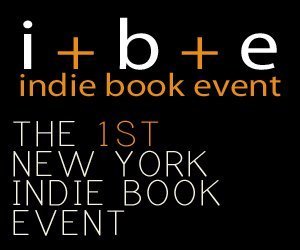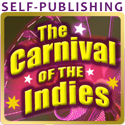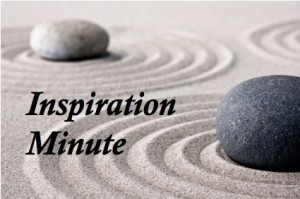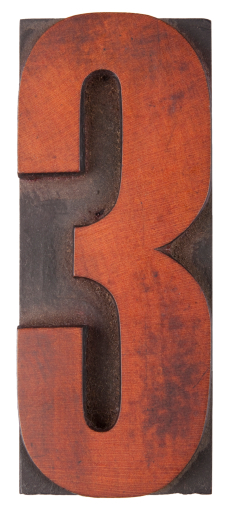P.J. Kaiser's Blog, page 7
August 31, 2011
Indie Publishing: Editing (2 of 5)
 This is the second of five posts in which I'll delve into detail on the presentations and discussion at the Indie Book Event 2011. Before reading this post, you might want to read the following:
This is the second of five posts in which I'll delve into detail on the presentations and discussion at the Indie Book Event 2011. Before reading this post, you might want to read the following:
- My overview post "Indie Publishing: One Size Does Not Fit All" in which I provide some high level observations from the conference.
- The first in this series of five posts, entitled "Indie Publishing: Pros, Cons & Definitions (1 of 5)" in which I discuss some of the details from the discussions.
The subject of editing came up several times during the course of the day, but the main session was during a presentation by Jessica Swift of Swift Ink Editorial Services.
Her discussion began with some perspectives from a couple of literary agents who, of course, serve as the initial "gatekeepers" in traditional publishing. Most of the agents cited felt that their opinion of a manuscript certainly goes up with a reduction in editing errors, but that depending on the type of errors, they may not ruin a writer's chances of having their manuscript accepted. At that intermediate stage, the emphasis is on finding the problems so they can be fixed rather than rejecting a manuscript based on errors.
There is, of course, a difference between having a manuscript with editing errors in it while it is in the querying stage and having editing errors when it is in final print or e-book form.
There was a discussion of the various types of editing that are needed to ensure the quality of the finished manuscript including content editing, line editing and copy editing. The general consensus – confirmed by editors, authors and essentially everybody in the room – is that editing is important. Producing the highest quality product possible is critical for indie publishers.
Jessica also asserted that having a low quality book – i.e., a book with poor editing – can damage your reputation and can follow you into subsequent books as well. This seems to be a logical conclusion and there were a lot of heads nodding in the audience.
Short conversation, right? Not so fast.
Somebody in the audience asked about indie authors who have a reputation for poor editing but enjoy very high book sales with loyal customers. Some names were named, but I'm not going to call them out in my post. Anybody who's been following the indie publishing conversation can probably guess at a couple of the names.
With everybody placing such an emphasis on editing, how do they explain the success of authors who don't seem to have a polished product? Nobody at the conference seemed to want to take a stab at this conundrum.
So, I thought I'd do a bit of research. In my recent "Three for Thursday," I included a poll and asked, as a reader, "How important is editing to you?" I had 27 responses as follows:
"Important. When I encounter typos, I am momentarily aggravated but then can get back into the book fairly easily." 67% or 18 of 27.
"Critical. When I encounter typos, it spoils the entire book for me." 22% or 6 of 27.
"Somewhat. I notice typos, but they don't bother me too much." 11% or 3 of 27.
"Not at all. What tpyo?" 0% or 0 of 27.
So, in this admittedly unscientific poll, typos are either critical or important for around 89% of respondents.
My #fridayflash friend Tim VanSant pointed out in the comments to my post that he has recently written a post about how some discrepancies of logic spoiled a book for him. As he mentions in the comments to his post, he doesn't blame the author so much as the editors who should be catching things that can pull a reader out of a story.
So, it does depend on the type of error in a final manuscript, but errors seem to matter at least somewhat to all participants.
The only logical explanation to the conundrum is that, in some cases, a story is so riveting or engaging that readers are willing to forgive minor errors. The solution? Make sure that our stories are so kick-ass that readers are willing to forgive. Which will probably require hiring an editor. {insert ironic sigh here}
Another potential explanation is that because most books from indie publishers cost less than those from traditional publishers, readers are more inclined to let minor editing lapses slide by.
Another important point was mentioned during the discussion. Indie publishing (or, specifically, self publishing) has a bad reputation in some circles due primarily to poor editing. Every indie author present who weighed in on this issue felt that they needed to make their books even more perfect than those from traditional publishers in order to be taken seriously.
So, what do you think? Are you a reader who claims that editing is important but you have overlooked typos by authors you really enjoy? Does price factor in with how you feel when you find editing errors? Do you feel that indie published books need to be perfect in order to overcome the bad reputation of indie books? Do you think an editor is necessary? Please share your thoughts in the comments and stop back next Wednesday for the next post.

August 30, 2011
Inspired Links – Aug 30, 2011 – Special "Carnival of the Indies" Edition

In my Tuesday "Inspired Links" feature, I provide links and brief descriptions of thought-provoking articles. I hope you enjoy these little treasures 
This week, my post "Indie Publishing: One Size Does Not Fit All" is included in Joel Friedlander's Carnival of the Indie's (Issue 11). This is a terrific collection of posts from around the web discussing various aspects of indie publishing. So, instead of my regular hand-picked selection of my favorite links, this week I am featuring Joel Friedlander's selections. It's just a short hop over to the Carnival of the Indies to check them out. To see all past issues, click on the icon …


August 29, 2011
Inspiration Minute – Hurricane Irene – Aug 29, 2011
 In my Monday feature, "Inspiration Minute," I'd like to share with you something that has caught my attention or inspired me recently. Be forewarned, it may take a bit more than a minute!
In my Monday feature, "Inspiration Minute," I'd like to share with you something that has caught my attention or inspired me recently. Be forewarned, it may take a bit more than a minute! 
Living in low-lying Hoboken, New Jersey, we are not strangers to flooding. Summer storms frequently inundate the city. Since moving there in 2006, we have been lucky to never have any water on the first level of our home (the garage, storage area and entryway).
When news came a few days ago of Hurricane Irene that was forecasted to pass through NYC, the city of Hoboken and most of its residents took the threat very seriously. I had planned on taking the kids to visit Grandma in Ohio before school started and once news came of the hurricane, we decided to depart a few days early. My husband – who planned to wait it out – decided to evacuate to Pennsylvania at the last minute for the night of the storm.
Bottom line? It could have been worse. Much worse. Miraculously, our house was spared in this super storm but many others weren't as fortunate. Hurricane Irene blew through a wide swath of the east coast. The photos of the aftermath – along with some of the storm in action – are a powerful reminder of nature's power. Check out these photos from the New York Times and these photos of Hoboken taken by a resident. Surely good fortunate is worth at least a bit of inspiration.

Please let me know if this is interesting or inspiring in the comments! It will help me to hone in on the best items for future installments of "Inspiration Minute."

August 25, 2011
Three for Thursday: Social Media Tips
Welcome to my blog feature – "Three for Thursday." You may not see an installment every Thursday, but when I can manage it, I'll be sharing three cool – er – somethings.
I'm once again breaking my self-imposed policy to not talk about social media on my blog. I hope that you'll forgive me this indulgence. I wanted to share three quick tips that perhaps you'll find elsewhere, but in speed-round form. I use Twitter as a specific example, but the tips apply to any social media platform.
1. If you're new to Twitter and you're growing your following, don't begin by following 2,000 people en masse just to see who follows you back. The way to grow a quality following is to think "turtle" rather than "hare" and grow it slowly. This allows you time to interact with your new followees and followers. Trust me, it's better to have 200 high quality followers than 2000 random followers. When I have a new follower who is following 2000 and only has 100 people following them, that's a red flag to me and I scrutinize that person further before determining whether or not to follow back.
2. If you're an author and you have a book (or multiple books) out, please don't make every tweet a promo for your book or a retweet of one of your friend's promos. I have seen so many tweetstreams that are completely filled with promos – many promos each day – with virtually no interaction with followers. I don't follow these accounts and you shouldn't either. And you definitely shouldn't BE one of these accounts. {side note: don't go to the opposite extreme either and never tell your followers about your books. I recently discovered one of my Twitter peeps is a writer with a published book and since she never tweets about it, I didn't even realize it.} And on a similar subject – auto DM's for new followers? Just say "no." There's no way to do this without coming off as a spammer.
3. It's OK to follow people and not expect a follow back. Aren't you glad I'm giving you permission?  Reciprocal follows are wonderful and they are what Twitter is really all about. It's so much easier to have a conversation when it's a two-way conversation rather than one-way. But sometimes if somebody's stream is interesting, then just press "follow" and don't worry whether that person will follow you back or not. I follow (at last count) 383 people who don't follow me back. Surprised? I also follow many more than that via lists. My main list of people who I follow to gain information (not so much focused on interaction) is currently maxed out at 500 people, some of whom follow me back and some don't. Figure out what topics you're interested in and follow people who tweet about it and don't worry about your stats.
Reciprocal follows are wonderful and they are what Twitter is really all about. It's so much easier to have a conversation when it's a two-way conversation rather than one-way. But sometimes if somebody's stream is interesting, then just press "follow" and don't worry whether that person will follow you back or not. I follow (at last count) 383 people who don't follow me back. Surprised? I also follow many more than that via lists. My main list of people who I follow to gain information (not so much focused on interaction) is currently maxed out at 500 people, some of whom follow me back and some don't. Figure out what topics you're interested in and follow people who tweet about it and don't worry about your stats.
And your bonus tip for today? Please don't go overboard with #followfriday's or #writerwednesday's or any other special mention days. Sending out too many and/or retweeting every single one you receive just fills up people's streams and keeps them from seeing valuable information. Want to mention lots of people? Make a list and tweet the link to that list.
Thanks for bearing with me through my mini-rant. Happy tweeting! And Facebooking and Google Plusing …

August 24, 2011
Indie Publishing: Pro's, Con's & Definitions (1 of 5)
 This is the first of five posts in which I'll delve into detail on the presentations and discussion at the Indie Book Event 2011. Before reading this post, you might want to read my overview post "Indie Publishing: One Size Does Not Fit All" in which I provide some high level observations from the conference.
This is the first of five posts in which I'll delve into detail on the presentations and discussion at the Indie Book Event 2011. Before reading this post, you might want to read my overview post "Indie Publishing: One Size Does Not Fit All" in which I provide some high level observations from the conference.
There were three panel discussions during the course of the day that involved some high level discussion of the pros and cons of indie publishing along with a debate about some indie publishing definitions.
These three panels included, in various combinations, Lori Hettler (from The Next Best Book Blog), Robin Slick (indie writer), Kathryn Lively (indie writer and publisher), Gene Doucette (indie writer), and Nina Perez (indie writer).
For those who have been following the discussions about indie publishing for some time, there wasn't much new in the "pros and cons" discussion, although it was probably very informative for newbies.
Pros of indie publishing that were cited include:
Author has more control over all aspects of the publishing process.
Higher royalties.
Not constrained by conventional rules of the genres.
Cons of indie publishing that were cited include:
Potentially lower sales versus a large publishing house.
Can't leverage off of the marketing efforts of other books (other than their own) the way authors can with large publishers.
Potentially smaller distribution network – at least for print books – than a large publisher.
Having to spend time and energy on aspects of publishing other than writing.
There was a lot of discussion about how authors came to indie publishing and how they felt about it once they had arrived. Almost all of the authors in the discussions had come to indie publishing after pursuing traditional publishing channels for some period of time. Some had pursued traditional publishing half-heartedly and some had pursued it extensively.
Robin Slick talked about her experience when she first began pitching her romance novel to publishers. She had already gained some readership and very positive feedback on her writing. Publishers weren't interested in her book because she broke some of the traditional rules for the romance genre including the requirement for a happy ending, among others. So, that was her impetus to pursue indie publishing. Robin has pursued indie publishing wholeheartedly and has thrived.
Gene Doucette had a similar experience. He secured an agent, but publishers weren't interested in his novel "Immortal" because it crosses genre boundaries. Publishers liked it but weren't sure how to classify or market it. Gene had a somewhat different perspective than Robin in that he said outright that indie publishing was not his first choice. He believes in the story he is telling, however, and is beginning to embrace indie publishing.
Nina Perez pursued traditional publishing because she felt it made her "legitimate," but then after the rejections began rolling in, she changed course and successfully embraced indie publishing. She emphasized that it's important for indie publishers to put their best foot forward and make sure that the product is as professional and high quality as a traditionally published book.
One of the intriguing discussions had to do with what, if anything, is the difference between "self publishing" and "indie publishing." The terms are often used interchangeably. The term "indie publishing" is also frequently used to describe small publishers.
There was a lot of discussion and disagreement on these issues, but in the end, there seemed to be a general consensus that the term "indie publishing" is an umbrella term that can include both small presses and self publishers. Some make a distinction between self publishers and indie publishers by saying that true "self publishing" is when a writer does it all himself and doesn't outsource anything (including formatting, book covers, etc.) but some did not accept that definition.
Self publishing differs from traditional publishing and small presses in the following ways:
In self publishing, the writer owns the ISBN.
In self publishing, there is no gatekeeper besides the writers. In other words, there is no selection process and nobody is saying "we won't publish this" other than the writer.
In self publishing, the writer is in control over the publishing process and hires freelancers or service providers (e.g., for cover design, formatting, etc.) or does all the work himself.
As a follow-up to this topic, I wanted to see how much importance any of this has on readers. In my recent "Three for Thursday," I included a poll and asked "How do you feel about publishers of the books you read?" I had 24 responses as follows:
"I don't pay any attention to the publisher – the book and the author are most important to me." 50% or 12 of 24 responses.
"I notice the publisher of a book, but I don't select books based on the publisher." 42% or 10 of 24 responses.
"I only check the publisher to see if it's a reputable publisher, rather than a self-published imprint." 8% or 2 of 24 responses.
"I generally only have a few publishers I follow and whose books I read." 0% or 0 of 24 responses.
Granted, this is not exactly an unbiased poll because the only people polled are readers of this blog who happened to visit my post. But if it's indicative at all of the general population of readers, they generally don't much care who published the book or how it was published. According to my rough results, indie publishers could risk 8% of potential readers turning away. As long as that number stays nice and low, there's hope for indie publishers.
If any attendees or presenters would like to chime in with additional takeaways from the conference, please feel free.
So, how do you feel about any of these topics – do you agree on the distinction between indie publishing vs traditional publishing? Indie publishing vs self publishing? And if you're an indie author, how did you come to it? Do you feel that indie publishing is "Plan B" or did you plan to go indie all along?

August 23, 2011
Inspired Links – August 23, 2011

In my "Inspired Links" feature, I provide links and brief descriptions of thought-provoking articles. I hope you enjoy these little treasures 
India Drummond began her publishing journey with a small press and ended up as an indie publisher. She wrote for the first time about her journey in this post: "Ordinary Angels Revealed."
There are a couple of good posts on blog design that I want to share. Joel Friedlander posted "Why Your Blog's About Page Matters" and Evo Terra posted "Author Contact Info – Do you make it hard for your readers to interact with you?" I've posted before on this subject in "5 Tips for Being Found by your Readers" and it continues to be a big issue. I recently had to track down emails for a dozen of my Twitter friends and I wasn't able to do it for two of them. I had to DM them and ask me to send me their email addresses.
FridayFlash and TuesdaySerial writers, among others, will be heartened by this post from Brian Klems: "Should You Post Your Novel Online for Free?"
We had a guest post over at Tuesday Serial from Sharon T. Rose called "Why I Write Web Serials" that you should check out. And here's the most recent Tuesday Serial report – 24 new serial installments!
If you enjoy lovely prose (and who doesn't?), here's a beautiful memoir piece from Darrelyn Saloom "Behind the Curtain of Memory."
This guest post from Tony Noland over at the Friday Flash site has given me plenty of food for thought as I work to put together my own anthology.
Anne R. Allen has written about the end of book tours in "RIP the Author Book Tour – and why you shouldn't be sad to see it go." It's a very interesting look at the current state of book publicity.
If you're wondering about my methodology for choosing links for inclusion in this post, rest assured there isn't one. It's just a collection of things that I found interesting and I thought you might too. Please let me know what you think!

August 22, 2011
Inspiration Minute – Trey Ratcliff – Aug 22, 2011
 In my feature, "Inspiration Minute," I'd like to share with you something that has caught my attention or inspired me recently. Be forewarned, it may take a bit more than a minute!
In my feature, "Inspiration Minute," I'd like to share with you something that has caught my attention or inspired me recently. Be forewarned, it may take a bit more than a minute!  For readers, these posts might show you something interesting that you hadn't considered before and for writers, these posts might inspire a story – either directly or indirectly.
For readers, these posts might show you something interesting that you hadn't considered before and for writers, these posts might inspire a story – either directly or indirectly.
Looking for some visual inspiration? Today you've hit the jackpot. I've got the gift that keeps on giving. Not only is photographer Trey Ratcliff fantastic in that he has a unique visual perspective, he's also prolific. His site "Stuck in Customs" features at least one new photo each day from his travels. I'll stop gushing now and let you check it out. You'll be glad you did.
Please let me know if this is interesting or inspiring in the comments! It will help me to hone in on the best items for future installments of "Inspiration Minute."

August 18, 2011
Three for Thursday: Reader Questions
Welcome to my blog feature – "Three for Thursday." You may not see an installment every Thursday, but when I can manage it, I'll be sharing three cool – er – somethings.
This week, instead of sharing something with you, I'd like for you to share something with me. Well, something specific, actually. I have three questions that I'd like you to consider – it will only take a moment, really. Thanks for your help!
Note that many of the people reading this post will be writers and readers … I ask you to put your "reader" hat on and perhaps try to remember how you felt about these issues before becoming a writer (if you can!):
{I apologize for the ads and flashing banners on the polling site – polldaddy was being uncooperative this week}
How did you hear about the book you're reading right now?
A friend (in real life) recommended it to me
A friend (via social media) recommended it to me
I heard about it on social media from the author or a publicity event
I read a review in a newspaper / magazine
I read a review online
I found it while browsing Amazon or BN or other online bookstore
I found it while browsing in a bricks-and-mortar bookstore
pollcode.com free polls
How do you feel about publishers of the books you read?
I generally only have a few publishers I follow and whose books I read.
I notice the publisher of a book, but I don't select books based on the publisher.
I don't pay any attention to the publisher – the book and the author are most important to me.
I only check the publisher to see if it's a reputable publisher, rather than self-published.
pollcode.com free polls
How important is editing to you?
Critical. When I encounter typos it spoils the entire book for me.
Important. When I encounter typos, I am momentarily aggravated but then can get back into the book easily.
Somewhat. I notice typos, but they don't bother me too much.
Not at all. Waht tpyo?
pollcode.com free polls
Thanks for participating! Feel free to share any additional insight or thoughts in the comments. In particular, please comment if you feel the answer choices for any question are incomplete. Please feel free to share this poll with your friends!
ps I need to credit Marisa Birns for inspiring the last poll choice on the editing question 

August 16, 2011
Inspired Links – August 16, 2011

In my "Inspired Links" feature, I provide links and brief descriptions of thought-provoking articles. I hope you enjoy these little treasures 
Note: I'm going to try to start posting my "Inspired Links" posts on Tuesdays. I've been trying to do sort of a weekly wrap-up post on the weekends, but I never seem to do it on time, so we'll see how Tuesdays work 
- If you are considering indie publishing, you need to treat your writing and publishing like a business which, in fact, it is. This excellent series of posts from Suzan Harden over at Pitch University will serve as an excellent starter guide to creating a business plan for your business. It's entitled "Indie U" and here's the first installment. I'll be mentioning this guide again in an upcoming post, but I wanted to give you a preview.
- If you're interested in picking up some books on e-publishing, but you're not sure which ones, you might check out Donna K. Fitch's post "3 Useful Books on E-Publishing" in which she summarizes a few key points from three books. Books included are by John Locke, Jon F. Merz and Michael R. Hicks.
- And if you're trying to decide whether to do self publishing or go with a small press (a subject near and dear to my heart at the moment), this post by Roz Morris provides some excellent food for thought when deciding.
- If you're following this debate about whether or not writers should blog about writing, the latest viewpoint is by Laura Pauling. Laura has an interesting perspective and links to several other writers weighing in on the discussion.
- If you've noticed that I frequently mention Dan Blank's posts in "Inspired Links," then I will confess that it's absolutely true. Why? Because he is on a streak with writing insightful posts like this one: "Writers: Connecting to your Audience Begins at Creation." I've been trying to follow his advice and involve all of my dear blog readers in my process of compiling my anthology. We'll see whether I'm able to do the same down the road when I begin my novel in earnest.
If you're wondering about my methodology for choosing links for inclusion in this post, rest assured there isn't one. It's just a collection of things that I found interesting and I thought you might too. Please let me know what you think!

August 15, 2011
Inspiration Minute – Volcanic Eruptions – August 15, 2011
 In my feature, "Inspiration Minute," I'd like to share with you something that has caught my attention or inspired me recently. Be forewarned, it may take a bit more than a minute!
In my feature, "Inspiration Minute," I'd like to share with you something that has caught my attention or inspired me recently. Be forewarned, it may take a bit more than a minute!  For readers, these posts might show you something interesting that you hadn't considered before and for writers, these posts might inspire a story – either directly or indirectly.
For readers, these posts might show you something interesting that you hadn't considered before and for writers, these posts might inspire a story – either directly or indirectly.
I've always been fascinated by volcanoes. I'm not exactly sure when my fascination started, but it was certainly intensified when we lived in Mexico City. The city is situated on a high plateau between two volcanoes. Nevado de Toluca is extinct but Popocatepetl occasionally has eruptions of smoke and ash. While we lived there, we got a very faint ash dusting several times. I was surprised one day walking out of the Superama (the supermarket) to a sight similar to that in picture number 15 in this lovely series of photographs of volcanic eruptions. Thinking about a cataclysmic story? These pictures could be inspiring.
Please let me know if this is interesting or inspiring in the comments! It will help me to hone in on the best items for future installments of "Inspiration Minute."






